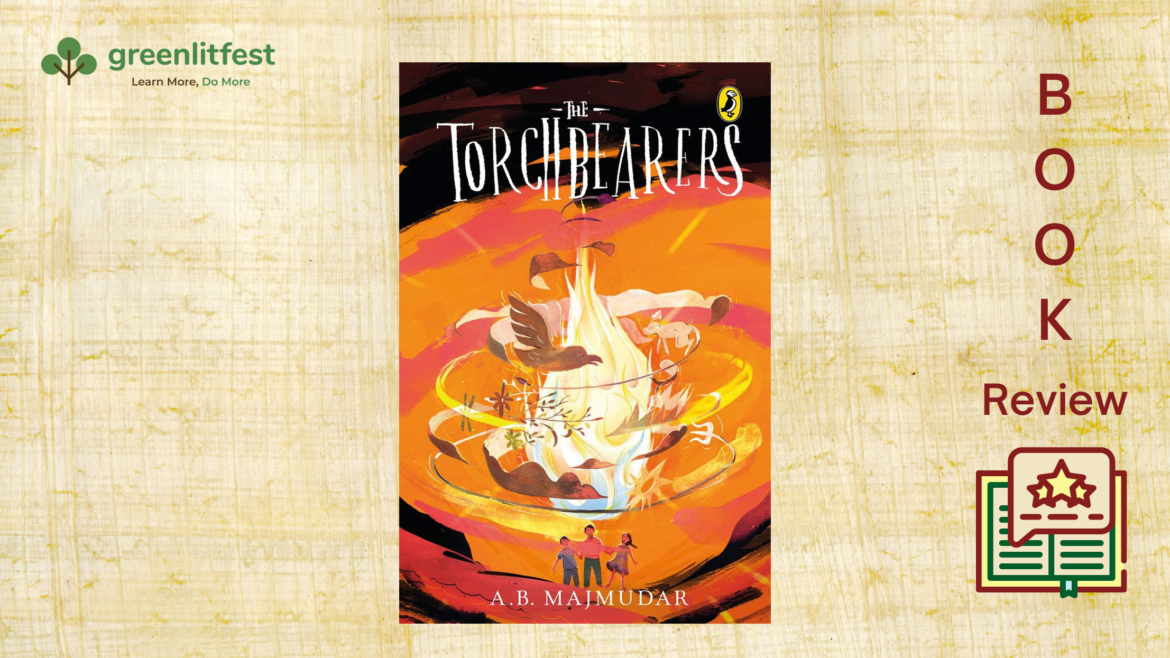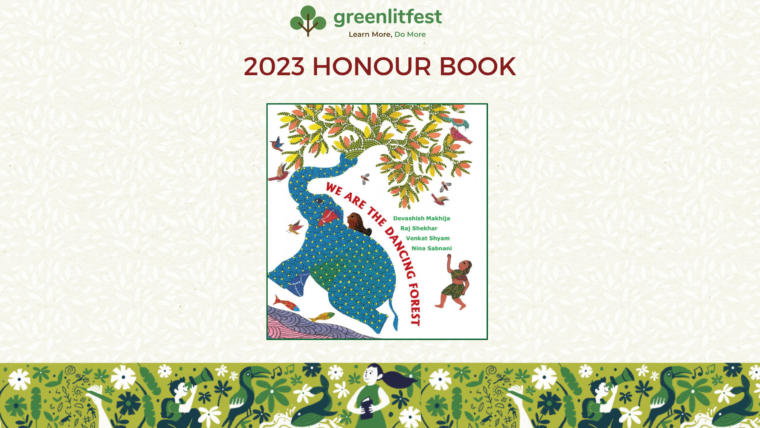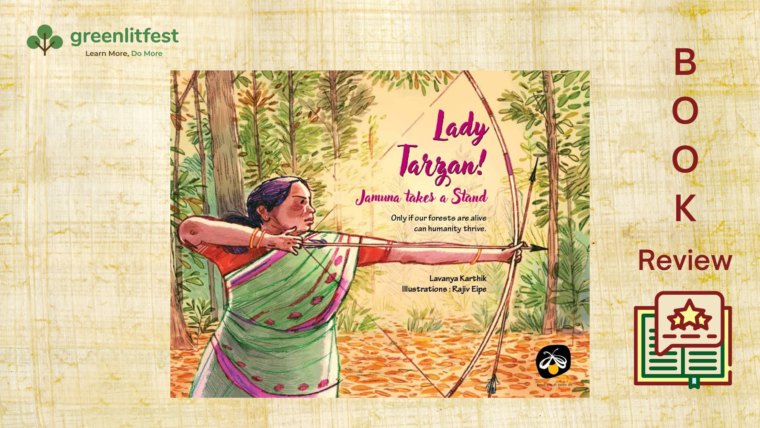Set in world where a majority of the Gods and their virtues have been beaten by the quest for wealth and power, Ami Majmudar’s The Torchbearers, published by Puffin, seamlessly blends mythology with environmental destruction. Demons abound, and nature has been taken over by forces that look at its bounty as a ‘resource’, with little feeling or care for its emotional richness and beauty. A deadly poison – kaalakuta – is spewing out of an ocean that’s been drilled for oil and everyone, including the demons, is suffering. Something needs to be done and done fast, before the waters are irrevocably destroyed.
In the midst of this ‘godlessness’, three little children armed with the wisdom of the Vedas, set out to find Shiva – the only one who can drink the poison and control the catastrophe. But Shiva has been missing for a while, and it won’t be so easy to find him. Besides, once Shiva drinks the poison, the ocean will throw up other things – precious gifts including the Nectar of Immortality, coveted as much by the demons as by the powerless Gods and war between the Gods and Demons may become imminent.
Gripping and well-written, the narrative can be used to explore mythological stories, what gives Gods the power we think they have, what godlessness can mean and how nature is often tied to religion.
There are several little verses in the book that the protagonists chant to invoke the Gods and I loved reading these. Sample this:
Fire hidden in your third eye
Your abode higher than birds fly
The Ganga’s source your topknot high
We invoke Shiva, vast as sky.
Sometimes, lived reality and the horrors we witness in the news fill us with dread about the world we inhabit. It’s not difficult to question the very concept of God and I know many people who are atheists. But the beauty of this novel is that it shows the vulnerabilities of ‘supposed’ Gods and makes us realise that empowerment lies within us. The Gods and the Demons are essentially about what we give precedence to, in our lives. Do we choose to keep our faith in all that is good within us, or do we fall prey to our weaknesses. In the midst of this, lies a deep-seated questioning of our relationship with nature and how we treat our planet that selflessly gives us all that we need.
(A version of this review originally appeared in the Facebook group ‘Reading Raccoons’)
By Meghaa Gupta



